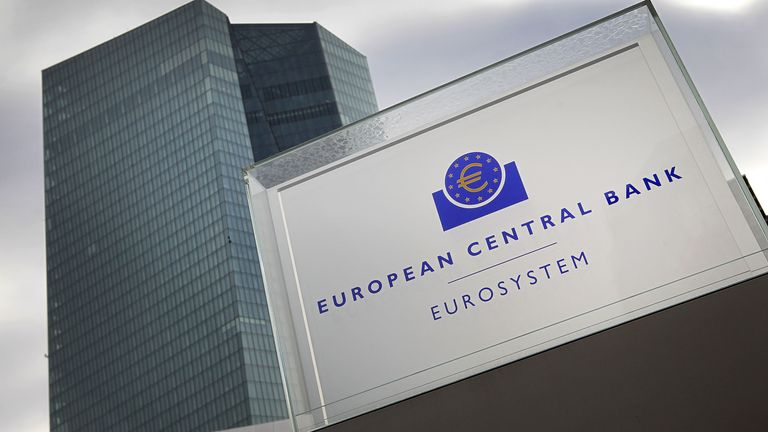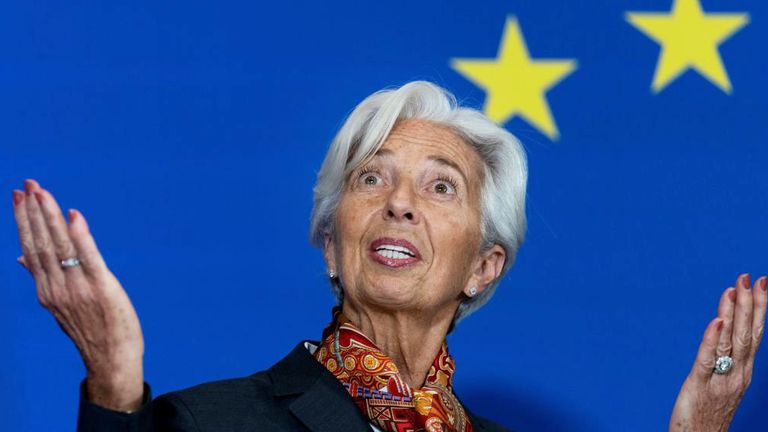The European Central Bank (ECB) has bolstered its coronavirus crisis bond-buying programme to €1.8trn (£1.64trn) after a second wave hit to the eurozone's economic recovery.
The €500bn lift to the Bank's debt purchase scheme - extended to 2022 - was the headline announcement as COVID-19 continues to wreak unprecedented damage on the economy of the 19 nations using the single currency.
The facility is ultimately aimed at keeping borrowing costs down for governments, consumers and businesses alike.
The ECB's measures also included the extension, by a year until June 2022, of a facility for banks to borrow money at a 1% interest rate on the proviso that the money continued to be passed on to businesses.
Its easing of collateral requirements on banks was also extended by the same margin.
The ECB did not change interest rate benchmarks, which are already at record lows.
At a news conference to outline the measures, ECB president Christine Lagarde said they delivered on the Bank's pledge to maintain policy support through the flow of credit while the pandemic took its toll.
She outlined a grim set of updated forecasts to reporters - with downgrades to both economic growth and inflation expectations.
Ms Lagarde said the Bank now expected a contraction in gross domestic product in the current quarter - with services worst affected - as renewed lockdowns slam the brakes on the recovery from spring's restrictions.
She told reporters that inflation in the euro area was now tipped to remain in negative territory until early next year.
Ms Lagarde said that while news of progress in developing vaccines was encouraging, uncertainty remained high as the crisis evolves and the prospect of a double-dip recession looms large.
Support from euro area governments, like that in the UK, has included cheap loans, furlough money and tax breaks.
At a wider EU level, a €750bn recovery fund has been held up by disagreements among member states.
Brexit threatens to add to the Bank's problems as both the EU and UK government have stated that Sunday is a deadline for the agreement of a free trade deal that would minimise economic disruption at the end of the transition period from 1 January.
Daniele Antonucci, chief economist and macro strategist at Quintet Private Bank, said the ECB's measures would also ease euro-related pressure on the Bank.
He said: "With the economy shrinking once again, a bout of deflation and a strengthening currency, extra ECB policy easing was widely expected.
"The extra half a trillion of asset purchases for a longer period of time will contribute to ease financial conditions further, by exerting downward pressure on both bond yields and the euro.
"An accommodative monetary stance is welcome but the key to revive economic activity is to ensure a sustained fiscal boost."




